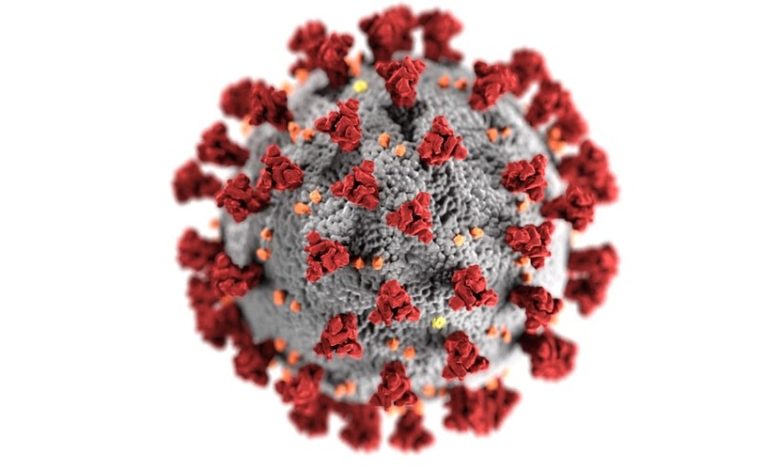#COVID19: Southern Africa On Strain After Omicron Varian Emerges
Following the announcement, the country reported 2,828 cases on Friday, a rise in infections.

Countries in Southern Africa have protested against a trove of travel bans by developed countries after a new coronavirus variant, Omicron, emerged in the region, renewing a debate over ‘racist’ border closures and vaccine inequality in Africa.
Scientists in South Africa, on Thursday, Nov. 25, announced that they detected the new variant, first known as B.1.1.529 and later named Omicron, saying it contains a “unique constellation” of more than 30 mutations to the spike protein, the component of the virus that binds to cells. This means it is highly more infectious than the delta variant.
Following the announcement, the country reported 2,828 cases on Friday, a rise in infections with the positivity rate jumping from the seven-day average of 4.3% to 9.1%.
The same day, the World Health Organisation (WHO) identified the new variant as a “variant of concern” because preliminary evidence suggested there was “an increased risk of reinfection” with the it.
The United Kingdom was the first to institute a flight ban from countries in Southern Africa, followed by Israel, Singapore, the United States, the European Union and nations across the globe, barring foreign travellers who have recently been in South Africa, Botswana, Zimbabwe, Namibia, Lesotho, Eswatini, Mozambique and Malawi. The ban has put strains on the economies just emerging from the impacts of the almost two-year pandemic.
The decision to ban flights from Southern Africa by the wealthy countries instead of applauding South Africa for its advanced genomic sequencing and ability to detect variants quicker is “draconian, misdirected and goes against the norms and advice by the WHO,” Joe Phaahla, South African Health said on Saturday.
“We believe that some of the reactions have been unjustified,” Phaahla said.
He added that for some countries, the decision was about “finding scapegoats to deal with what is a worldwide problem.”
The WHO cautioned against introducing travel curbs at this point, saying it could still take many weeks to determine the nature of the new variant that was first detected in Botswana on Nov. 11.
In repeated calls, WHO has said the global community must ensure all countries have access to vaccines to curb the global spread of the virus and prevent the development of new variants.
Worldwide access “offers the best hope for slowing the coronavirus pandemic, saving lives, and securing a global economic recovery,” the WHO’s website said. “There are enough doses of vaccines globally to drive down transmission and save many lives if they go to the people who need them most around the world,” it added.
Vaccine Inequality
While the wealthy countries have blamed the emergence of the new variant on Africa’s low vaccination rate despite having the lowest Covid-19 cases, many have faulted vaccine inequality in the developed countries.
“I am so angry right now,” Dr Ayoade Alakija, a co-chair of the Africa Vaccine Delivery Alliance, told The Guardian. “Even if the moral argument didn’t work for them, if we had lost sight of our common morality, and common humanity, then even from an enlightened self-interest perspective, surely, they understood that if they did not vax the world as equitably and as quickly as possible, that what we were going to see was variants springing up that we don’t know whether we’re going to be able to control.”
In August, Ahmed Kalebi, a prominent Kenyan pathologist, warned of “vaccine apartheid” in Africa amid the slow rollout of COVID-19 jabs. At the time, less than 2 per cent of Africa’s population of 1.3 billion had been fully vaccinated against COVID-19.
Matshidiso Moeti, Africa director for the WHO, accused Western countries of hoarding vaccines when there should be a more even distribution of jabs.
WHO had also asked wealthy countries to hold off on administering booster shots for healthy patients until at least the end of the year as a way of enabling every country to vaccinate at least 40 per cent of their populations. The organisation had previously called for a booster shot moratorium until the end of September for developing countries in need of vaccines.
“I will not stay silent when the companies and countries that control the global supply of vaccines think the world’s poor should be satisfied with leftovers,” Dr Tedros Adhanom Ghebreyesus, the WHO’s director-general said.
As of Nov. 25 2021, a total of 7,702,859,718 vaccine doses have been administered globally. Only 5.6 per cent of people in low-income countries have received at least one dose.
Support Our Journalism
There are millions of ordinary people affected by conflict in Africa whose stories are missing in the mainstream media. HumAngle is determined to tell those challenging and under-reported stories, hoping that the people impacted by these conflicts will find the safety and security they deserve.
To ensure that we continue to provide public service coverage, we have a small favour to ask you. We want you to be part of our journalistic endeavour by contributing a token to us.
Your donation will further promote a robust, free, and independent media.
Donate HereStay Closer To The Stories That Matter




